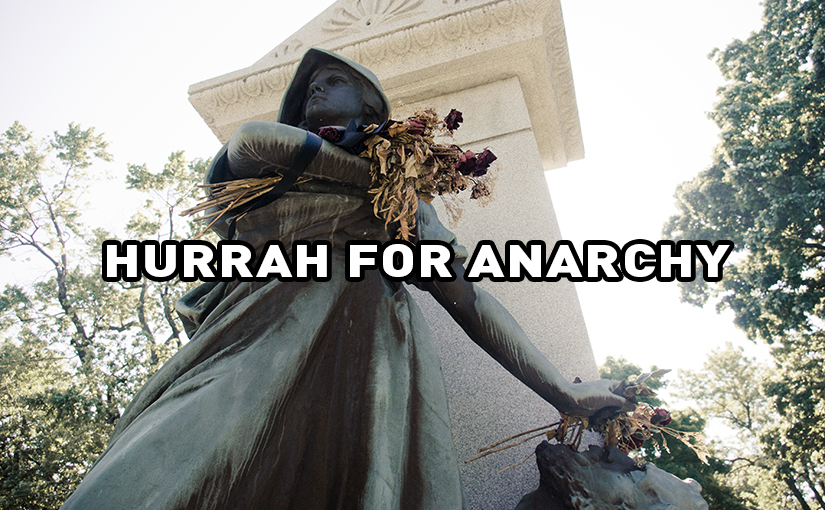In her essay “I Was a Teenage Anarchist and Now I’m a Mid-Thirties Anarchist,” Strangers in a Tangled Wilderness co-editor Margaret Killjoy writes:
“I’m not an anarchist for the sake of old-me. I’m not an anarchist simply out of habit, but out of deep and ever-deepening conviction. While on the surface, there are things about me that have calmed down, anti-authoritarianism and a pro-collective spirit have sunk deeper into me over the years. The difference between teenage anarchist me and adult anarchist me is the difference between the goth garb I wore in high school and the one I wear now: as a teenager, I was trying on a persona and a costume. As an adult, it’s that I’ve found the clothes and ideas that suit me.”
A lot of us are grappling with what it means to get older as an anarchist. We struggle with physical and mental health issues, adapting to new lifestyles, figuring out how to reckon our realities with the ideals of our younger selves. Out of a desire to make space for these stories, Strangers is putting together a zine anthology of essays (750-2500 words) that explore aging as an anarchist. What challenges have you faced? How have they been impacted by other parts of your identity or by privileges or experiences of oppression? How have you grown as an anarchist over the years? Which political strategies have you adopted, and which have you left behind? We’re looking for writing that’s political, that’s personal, that’s willing to be honest and, at times, unsure.
Please email submissions to seamsandstory@gmail.com with “Strangers Anthology” in the subject line by October 15, 2017. Include a cover letter and paste your submission directly into the body of the email or attach it as a Word document. There’s no minimum submitter age — feel free to send us work if the project resonates with you. Writers whose work is accepted for publication will receive $25 and two hard copies.
While all who self-identify as anarchists are welcome to submit, we’re particularly interested in publishing work by writers of color and by writers who are trans, queer, working class, people with disabilities, undocumented or from immigrant communities, Muslim, women, and others who are too often marginalized in anarchism and publishing.






